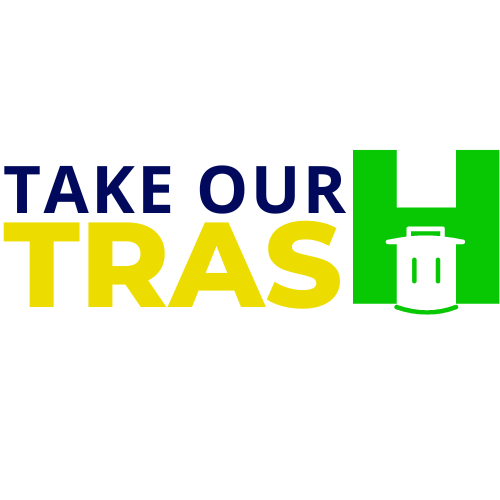Poor waste management isn’t just about a messy environment; it impacts our health, safety, and community well-being. In essence, poor waste management refers to ineffective, irresponsible, or improper handling and disposal of waste, which can lead to various environmental, health, and economic challenges. Let’s delve into the causes, consequences, and solutions for poor waste management, and explore how effective waste management and trash services play a vital role in maintaining a cleaner, healthier community.
Defining Poor Waste Management
Poor waste management occurs when trash and other waste materials are not properly collected, sorted, treated, or disposed of in ways that protect the environment and public health. This may include practices like leaving trash on the curb for prolonged periods, illegal dumping, lack of recycling efforts, and failure to use proper containment, all of which contribute to a less effective waste management system.
Common Causes of Poor Waste Management
There are various factors that contribute to ineffective waste management practices. Here are some of the primary causes:
- Lack of Awareness and Education: When people are unaware of proper waste disposal methods or recycling practices, they may unwittingly contribute to waste management issues.
- Insufficient Trash Services: In some areas, limited trash services lead to overcrowded waste bins or illegal dumping as people struggle to dispose of waste responsibly.
- Inadequate Infrastructure: Communities without adequate bins, collection services, or recycling centers often experience an increase in unmanaged waste.
- Government and Policy Gaps: Sometimes, inadequate regulations or lack of enforcement can lead to irresponsible disposal practices. Comprehensive policies are crucial to encourage sustainable waste management practices.
Consequences of Poor Waste Management
Poor waste management can lead to a series of environmental, social, and economic problems. Here’s a closer look at some of the most pressing issues:
- Health Hazards: Inefficient waste management can lead to the spread of diseases and increase in pests. Overflowing trash and decomposing waste create an environment where bacteria thrive, attracting rodents and insects that carry pathogens harmful to humans.
- Environmental Pollution: Poorly managed waste often finds its way into natural habitats, polluting water sources, soil, and air. For instance, plastic waste can leach harmful chemicals into the soil or break down into microplastics, which endanger aquatic life.
- Visual and Smell Pollution: Overflowing trash bins and littering create unsightly scenes and unpleasant odors. This pollution affects the quality of life for nearby residents and reduces the aesthetic appeal of public spaces.
- Economic Impact: The cleanup costs for poorly managed waste can be significant. Municipalities often need to allocate additional resources to clean up litter, manage illegal dumping sites, and address waste-related health issues, leading to higher taxes or reallocation of public funds.
- Climate Impact: Decomposing waste, particularly organic material, releases methane—a potent greenhouse gas. Without effective waste management, methane emissions can accelerate global warming.
How Effective Waste Management and Trash Services Can Help
Effective waste management goes beyond simple collection. It includes waste reduction, recycling, and safe disposal practices that keep communities cleaner, healthier, and more sustainable. Trash services are a key component of waste management and can prevent the consequences of poor waste handling.
- Regular Collection Services: Trash services provide routine waste collection, ensuring waste is regularly cleared and properly managed. This helps minimize health risks and prevents unsightly waste buildup.
- Recycling Programs: Recycling reduces the volume of waste sent to landfills and promotes the sustainable reuse of resources. Many waste management companies also offer curbside recycling, making it easier for households to dispose of recyclables responsibly.
- Composting Services: Organic waste, which makes up a large portion of household trash, can be composted. Municipal composting programs allow organic waste to be transformed into valuable soil additives, reducing landfill waste and greenhouse gas emissions.
- Hazardous Waste Collection: Specialized waste services handle hazardous materials like batteries, electronics, and chemicals, which need to be disposed of with extra care to avoid soil and water contamination.
Steps to Improve Waste Management Practices
If you’re interested in promoting better waste management in your community, here are some practical steps to consider:
- Educate Yourself and Others: Understanding the impact of poor waste management and learning about local recycling and waste disposal options can be transformative.
- Reduce, Reuse, Recycle: Aim to reduce waste by using reusable items and recycling whenever possible. Simple changes like using reusable shopping bags, avoiding single-use plastics, and composting food scraps can make a big difference.
- Use Trash Services Responsibly: Be mindful of trash collection schedules and adhere to any guidelines provided by your trash services to ensure waste is picked up and disposed of efficiently.
- Organize Community Cleanups: Community cleanups can help clear litter from public spaces and spread awareness about the importance of keeping neighborhoods clean.
- Advocate for Policy Changes: Support legislation that encourages better waste management practices, such as increased recycling facilities, incentives for composting, and stricter penalties for illegal dumping.
Conclusion
The repercussions of poor waste management reach far beyond overflowing trash cans. Effective waste management and responsible trash services play a crucial role in keeping our environment safe, reducing pollution, and protecting public health. By adopting sustainable practices and encouraging our communities to use trash services effectively, we can work toward a future where waste is managed responsibly and our communities are healthier, cleaner, and more enjoyable for everyone.
Effective waste management begins with us—every responsible disposal, recycling effort, and community initiative makes a difference.

